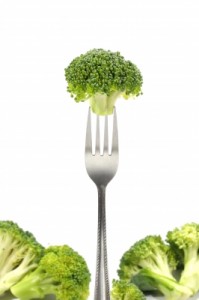Home >> My Pregnancy, Nutrition and Exercise >> Vegetarian and pregnant
Vegetarian and pregnant
You’re a vegetarian and pregnant, which means you have two very important reasons to make sure you’re paying close attention to your diet for the next 40 weeks. If you’ve been a vegetarian for a while you’re probably very clued up on what you need to eat to maintain a healthy diet, but we know there are some mums out there who have only recently become vegetarians, because one of your pregnancy symptoms is that the very thought of meat is now nauseating to you. Don’t worry though, we’re going to tell you exactly what a meat-free diet is missing and exactly where you can find those extra vitamins and minerals.
Did you know…because vegetarian mums are so aware of what they eat that they often eat a healthier diet throughout their pregnancies than mums who aren’t vegetarians?
What does a vegetarian diet lack?
- Iron
- Omega-3 fatty acids (probably the hardest nutrient to find in a vegetarian diet)
- Vitamin E
- Zinc
- And traces of: vitamin B12, vitamin D, folate and calcium (vegans more at risk of having a deficiency of these nutrients)
What can I eat to ensure I get enough of these nutrients?
- Iron: whole grains, green leafy vegetables, seeds and nuts, fortified cereal, spinach, dried fruit, sauerkraut, prunes and tofu (Hint: cook in a cast iron pot and traces of that iron will be in your food too).
- Omega-3s: canola oil, tofu, flaxseed (never plain flax), soybeans, walnuts, wheat germ, dark leafy vegetables, kidney and pinto beans, squash, broccoli, cauliflower and papaya.
- Vitamin E: olive oil, wheat germ, spinach, dried fruit and almonds.
- Zinc: lima beans, whole grains, nuts, dried beans, dried peas, wheat germ and dark leafy vegetables.
- Calcium: Cow’s milk or soy milk should meet your calcium needs (if you’re vegan you probably need to look for other sources of calcium).
Mums as you can see many of these good foods provide more than one of your important nutrients so it won’t be too hard to adjust your diet. However, if your diet is still not giving you all of those important vitamins and minerals you can always try buying foods fortified with the nutrient you’re lacking or taking supplements. Still not sure? Then speak to your physician and we’re sure he/she will recommend a great nutritionist.
Tags: 40 weeks, calcium, Folate, fortified foods, fruits, iron, minerals, nausea, nutrition, nutritionist, omega-3, pregnancy, pregnancy symptoms, pregnant, Supplements, vegetables, vegetarian, vitamins, whole grains, zinc
Related post

Different pregnancy diets
Are you a mum-to-be with a special dietary requirement? Are you worried this could cause problems during your pregnancy? Well, there’s actually no need to worry, because there is plenty you can do and eat that allows you to maintain your diet while also ensuring you and your baby are getting all of the vitamins […]
Read more...4 weeks pregnant: your body
You are in the fourth week of the first trimester of your pregnancy. This week more obvious pregnancy symptoms start to appear. This is normally around the time when you start to wonder am I pregnant? Should I take a pregnancy test? The answer is yes, you should! If you take a home pregnancy test […]
Read more...